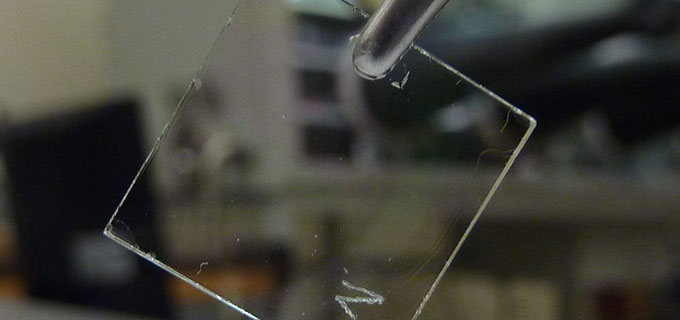Transparent electronics made possible by world's fastest organic transistor

Engineers at Stanford have successfully achieved a breakthrough in developing world's fastest organic, thin-film transistor. The latest transistor is about 5x faster than its rivals created using a similar technology. Zhenan Bao, professor of Chemical engineering at Stanford & Jinson Huang, assistant professor of mechanical and materials engineering at University of Nebraska-Lincoln altered the basic process of developing the thin-film organic transistors. These transistors would allow for the performance needed for high-res displays and other electronic devices.
The typical process of developing organic transistor involves dropping a special solution of carbon-rich molecules along with complementary plastic on a spinning glass platter. The spinning movement of the platter allows for creating a coat of the material over the top. The researcher duo spun the platter faster and only coated a tiny portion of the spinning surface; approximately the size of a regular postage stamp.
This change in the process of development of the transistor resulted into denser concentration of the organic molecules into a more regular alignment and made way for better carrier mobility. The researchers believe that the process can be improved further and could lead to manufacturing of low-cost, high performance electronics built on glass, clear & flexible plastic substrate.
Source: #-Link-Snipped-#
0
